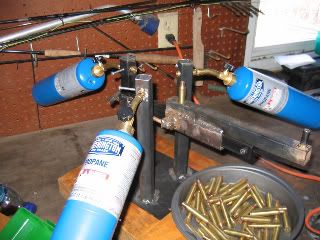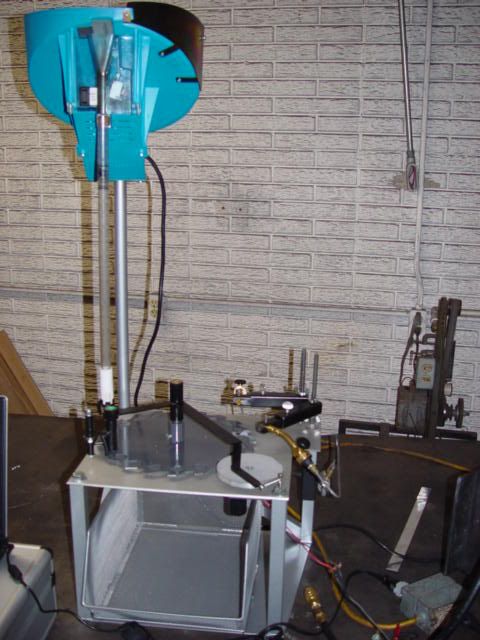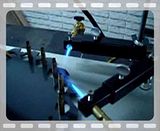Re: Annealing Brass
<div class="ubbcode-block"><div class="ubbcode-header">Originally Posted By: RollerCam</div><div class="ubbcode-body">That's a great article from 6MMbr: http://www.6mmbr.com/annealing.html
Looks like, as long as you're not annealing the BASE of the cartridge, you're fairly safe from catastrophic damage/injury. </div></div>
Yep, already read that.
I tried the trick to push the neck against a hard table, and while I can bend the case mouth if I push hard enough, it doesn't just collapse easily so I think I'm ok. I tried with an un-annealed case and it bends the case mouth only slightly harder than my my attempts at annealed ones.
I have a new torch head so I'm hoping that it's a little more precise.
<div class="ubbcode-block"><div class="ubbcode-header">Originally Posted By: RollerCam</div><div class="ubbcode-body">That's a great article from 6MMbr: http://www.6mmbr.com/annealing.html
Looks like, as long as you're not annealing the BASE of the cartridge, you're fairly safe from catastrophic damage/injury. </div></div>
Yep, already read that.
I tried the trick to push the neck against a hard table, and while I can bend the case mouth if I push hard enough, it doesn't just collapse easily so I think I'm ok. I tried with an un-annealed case and it bends the case mouth only slightly harder than my my attempts at annealed ones.
I have a new torch head so I'm hoping that it's a little more precise.











